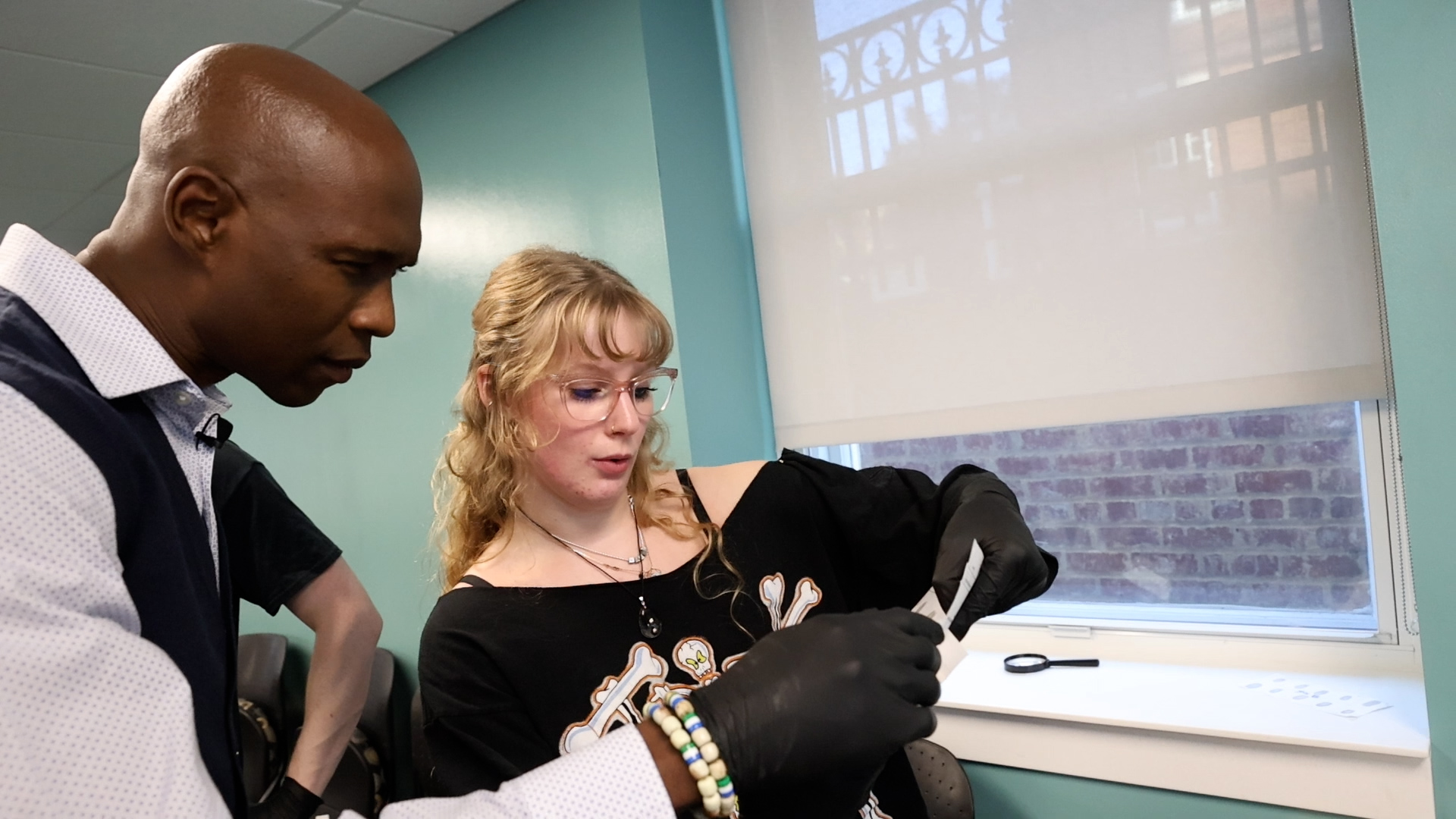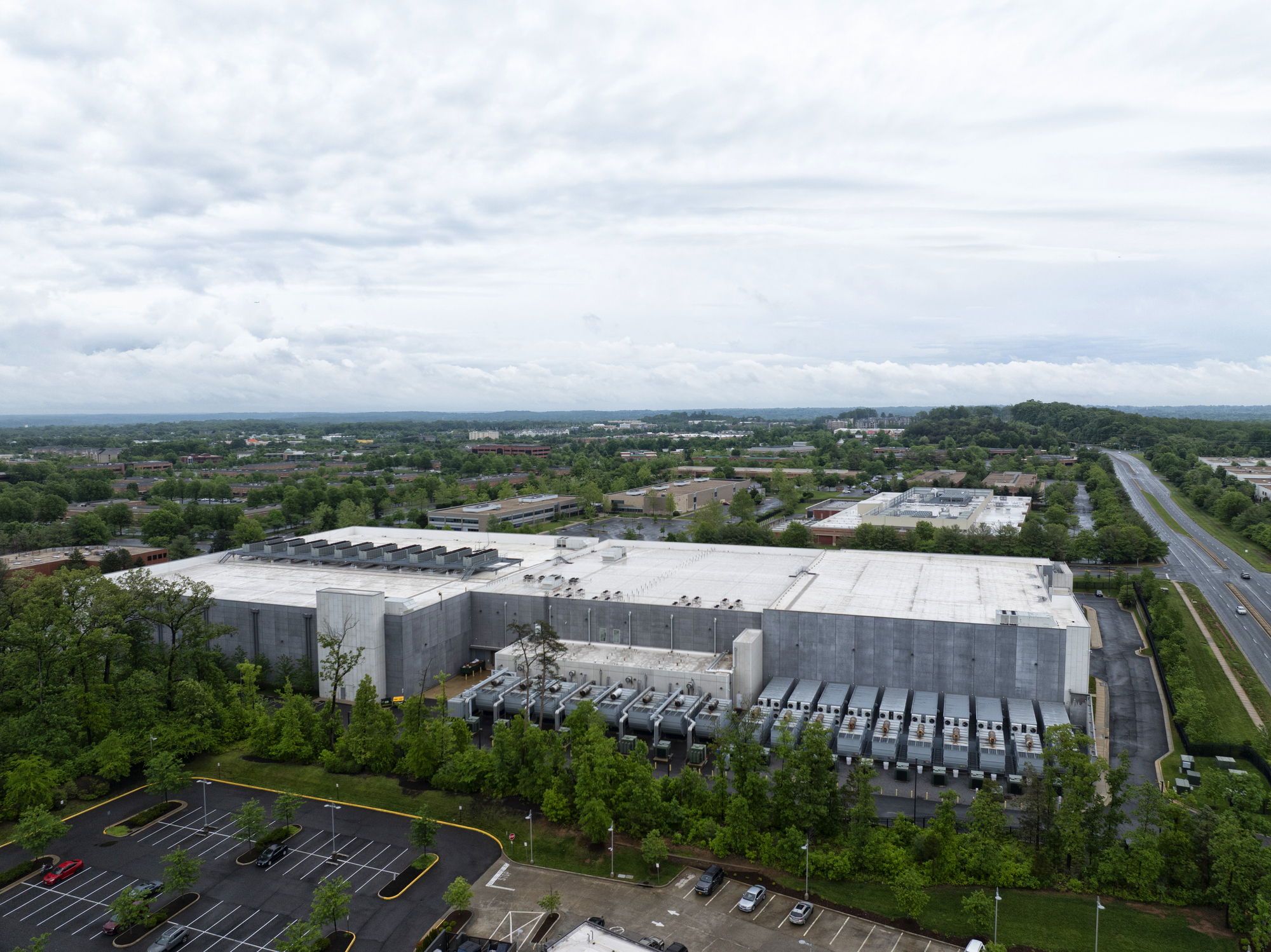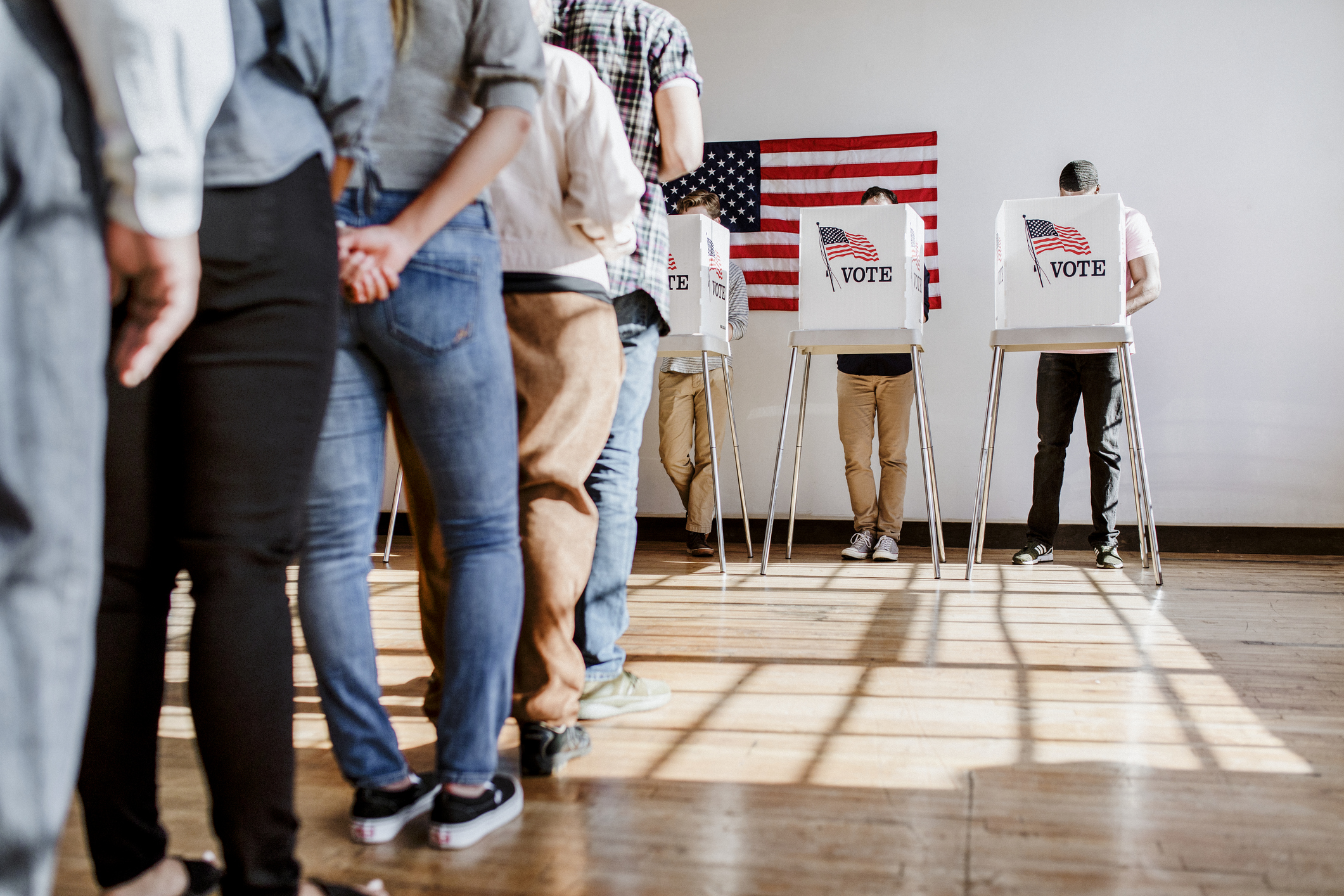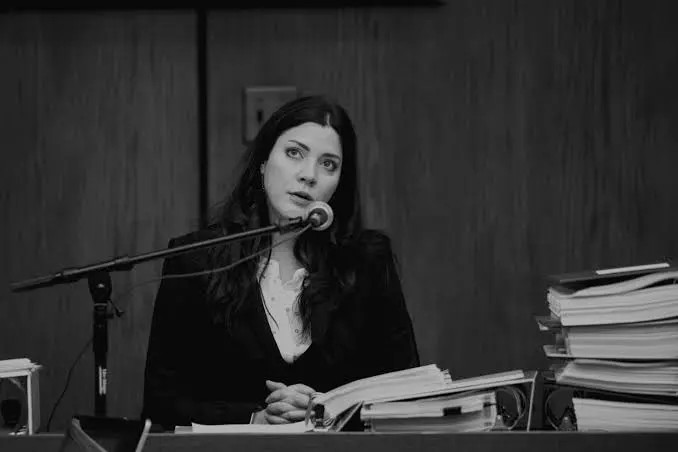Virginia Commonwealth University students, assistant professor of criminal justice Chernoh Wurie, and Wilder School alumna and Richmond Police Department forensic technician Jessica Bourne ('15 B.S.) explore an artificial crime scene, conducting fingerprinting, foot molds, photography, evidence measurements, and alternative light source stations.
by Mae Oetjens
When students walked into Dr. Chernoh Wurie’s Violent Crime Scene Investigation class (CRJS 425), they were more than surprised.
“I walked into the room and I saw a person just lying there. I thought it was an actual person – it was not,” jokes Kaelon Thompson, an undergraduate student majoring in Criminal Justice and Homeland Security and Emergency Preparedness.
The “person” was a mannequin staged by assistant professor Chernoh Wurie Ph.D., who built an artificial crime scene for students to investigate, utilizing skills and knowledge from their semester studies. With the help of criminal justice alumna Jessica Bourne (‘15 BS), a forensic technician at the Richmond Police Department, Wurie recreated what students may eventually uncover in the professional field.
“We came in and were given information on the case and had to come up with our idea of how to go about the investigation,” says undergraduate M. J. Benedict. “We got to do things like taking fingerprints and footwear impressions and using alternative light sources. It was really great to take what we’ve learned and actually get a chance to do it physically.”
Inquisitive yet confident, students roamed the classroom in groups, taking measurements, photographing evidence and putting the pieces together.
“I love the students and what they take away from it — their enthusiasm for the crime scene and their enthusiasm for learning and asking questions,” shares Bourne, who serves as a guest instructor during the course. “Whether it’s going through cases with them versus packaging evidence to going to crime scenes, they can take this experience and go with their future and their careers.”
The cases presented throughout the senior-level course are grounded in reality. Dr. Wurie shows pictures of actual crime scenes he worked on as a police officer and crime scene technician with the Prince William County Police Department. His students are perpetually enthralled as he explains step by step how he conducted his investigative process.
Wurie prioritizes valuable classroom experiences as essential for preparation to enter the workforce with a solid foundation of essential skills.
“We also expose them to police department labs and crime scene labs so they can see what goes on behind the scenes,” Wurie says. “It’s not just field work — they also can see the science behind the crime scenes.”



